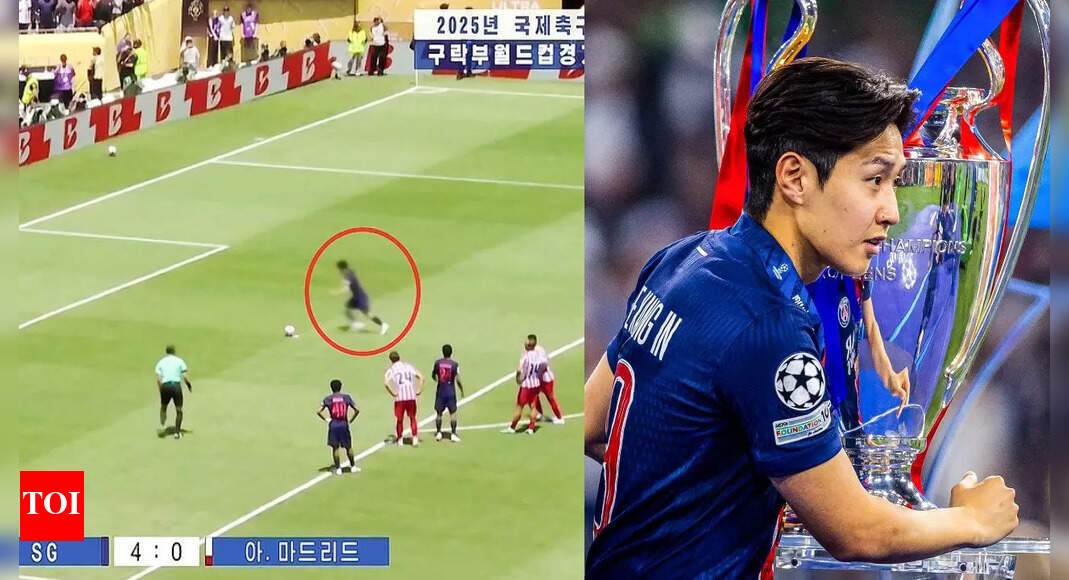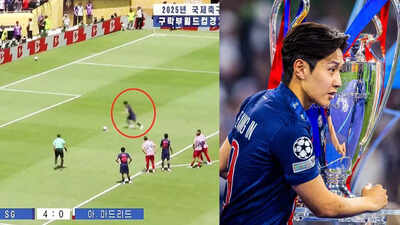Pyongyang’s Korean Central Television (KCTV) has once again demonstrated its strict media censorship by blurring South Korean footballer Lee Kang-in’s moment of glory during a delayed broadcast of the 2025 FIFA Club World Cup. The North Korean state broadcaster aired the match between Paris Saint-Germain (PSG) and Atlético Madrid five days after it was played at the Rose Bowl Stadium in Los Angeles last Sunday. With PSG leading 3–0 deep into stoppage time, Atlético conceded a handball, handing Lee a penalty in the 97th minute, which he converted for his first goal in the tournament. But North Korean viewers could only see an ‘altered’ version of the same. KCTV pixelated Lee’s face and number during the penalty and merely stated that PSG defeated Atlético Madrid, avoiding any mention of the South Korean midfielder’s name. This selective editing aligns with Pyongyang’s long-running practice of erasing South Korean sporting achievements from broadcasts. KCTV typically airs sports matches an hour or two before its evening news at 5 p.m., frequently showing Premier League and Champions League games involving top European clubs. But matches featuring South Korean stars like Tottenham’s Son Heung-min, Wolverhampton’s Hwang Hee-chan, or Lee Kang-in himself are either heavily censored or omitted altogether. The regime’s ruling Workers’ Party dictates all televised content, and football is no exception. The authorities have consistently refused to show South Korean flags and have gone so far as to refer to the national team as a “puppet South Korean team.” KCTV even pixelated the flag during broadcasts of the 2022 FIFA World Cup and the AFC U-17 Women’s Asian Cup last year.
Poll
Do you think North Korea’s censorship of sports broadcasts is justified?
Six months into the 2024/25 Premier League season, KCTV began airing matches in January — but with what US-based website 38 North described as “heavy-handed intervention” from Pyongyang’s censors. This means any clubs with prominent South Korean players are practically off-limits for broadcast, a source of frustration for North Korean football fans who might secretly admire players like Son or Hwang.

